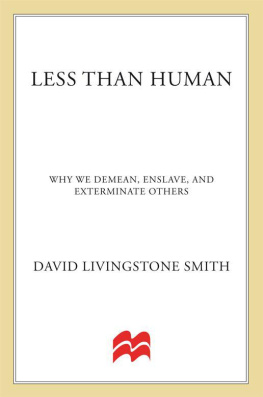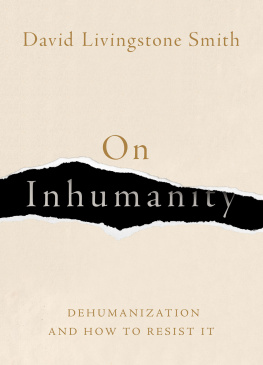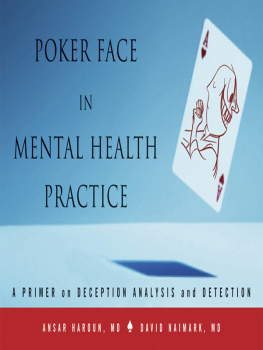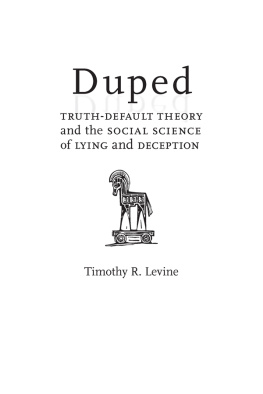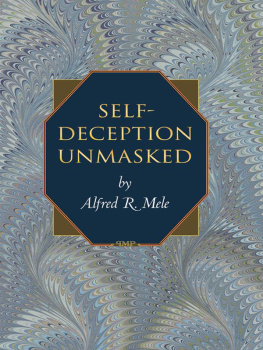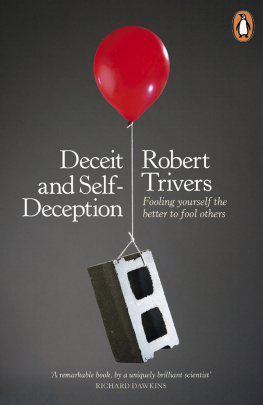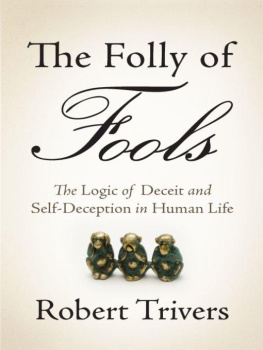This volume was a long time coming, and would never have seen the light of day if not for the determination and support of my agent, Michael Psaltis. I was also extremely fortunate to have as my editor Ethan Friedman, who provided just the right mixture of criticism and support. Thanks also to David Buss, Steven Pinker, Arthur Reber, and Robert Trivers for their generous support and to Howard Bloom for his one-man chorus of approval. Thanks also to Leif Ottesen Kennair, Nina Strohminger, Irwin Silverman, Marilyn Taylor, Norrie Feinblatt, Kenneth J. Silver, and Felicia Sinusas.
I owe an incalculable debt of gratitude to Rob Haskell for his endless support, encouragement and stimulation, and sterling integrity. The many hours we have spent discussing unconscious communication and reassuring one another of our mutual sanity have been crucial to this book. Discussions with Steven Kercel about the mathematics of self-reference, impredicative logic, and semantic ambiguity have also had a significant impact on my thinking.
Finally, I could not have managed without the support of my wonderful wife, Subrena. Not only because of her profound intuitive understanding of evolutionary biology, which contributed several important insights, but also for her forbearance while yet again I spent a frantic summer strung out on black coffee as I struggled with an overdue manuscript.
At every level, from brute camouflage to poetic vision, the linguistic capacity to conceal, misinform, leave ambiguous, hypothesize, invent, is indispensable to the equilibrium of human consciousness.
George Steiner
The human mind is one of the most extraordinary and most poorly understood characters in Mother Natures great gallery of creations. It took millions of years for it to evolve. Over immense expanses of prehistory, our ancestors acquired minds with a distinctively human casta range of passions and emotions, the ability to express their thoughts in words, to craft tools, to plan and to lie. Unfortunately or not, the gradual changes in brain structure that eventually produced the modern mind did not endow us with much ability to understand ourselves. Self-understanding does not come naturally to human beings, like eating, drinking, and having sex. Pursuing the reasons for this takes us to the heart of human nature.
Evolutionary biology teaches us that the tendency to deceive has an ancient pedigree. We find it in many forms, at all levels, throughout the natural kingdom. Even viruses, organisms so simple that it is a struggle to think of them as living things, have subtle strategies for deceiving the immune systems of their hosts: nature is awash with deceit. Many of the phenomena that I am going to describe would have seemed wildly implausible inthe era before biologists got down to the disciplined, scientific observation of animal behavior. In fact, even today there are people who have neither direct experience observing animals nor knowledge of the scientific literature who are prone to greet this sort of material with statements such as Are you putting me on? The moral of this story is to caution you against hastily rejecting some of the claims that I will make about human deception just because they seem far-fetched. Nature is far-fetched. Deceptive creatures have an edge over their competitors in the relentless struggle to survive and reproduce that drives the engine of evolution. As well-honed survival machines, human beings are also naturally deceptive.
Deceit is the Cinderella of human nature; essential to our humanity but disowned by its perpetrators at every turn. It is normal, natural, and pervasive. It is not, as popular opinion would have it, reducible to mental illness or moral failure. Human society is a network of lies and deceptions that would collapse under the weight of too much honesty. From the fairy tales our parents told us to the propaganda our governments feed us, human beings spend their lives surrounded by pretense.
Seven million years ago our ancestors were intelligent apes that lived in complex social groups dominated by linear hierarchies. The social world presented them with formidable intellectual challenges, and the need to cope with these exigencies pushed primates down the long road that eventually led to the evolution of anatomically modern human beings. Sheer social complexity compelled our prehuman ancestors to become progressively more intelligent, and as they did so they also became increasingly adept at social gamesmanship; the wheeling, dealing, bluffing, and conniving that I call social poker. Once established, the need to cope with skilled social players became a selection pressure that escalated cognitive development even further.
Between about five and seven million years ago the hominid and chimpanzee lines went their separate ways. The earliest hominids were small, hairy, and did not look much different from modern apes. Over the millennia, several species of human beings came into existence and passed away into extinction; the last of these, the Neanderthals, died out only about thirty thousand years ago. Then, sometime between one hundred and one hundred fifty thousand years ago, our own kind, Homo sapiens (Wise Men) arrived. At some point, we do not know exactly when, our prehistoric ancestors learned to speak. This momentous step altered human society and the human mind forever. It was probably only after spoken language arrived that Wise Men became able to lie to themselves.
Why did self-deception take root in the human mind? As we will see, the propensity for self-deception probably became part of our nature because it was so helpful to us in our dealings with one another. Not only does lying to oneself soothe many of the stresses of life, but, more importantly, it also helps one lie to others. One of the most important insights of modern sociobiology is that self-deception is the handmaiden of deceit: in hiding the truth from ourselves, we are able to hide it more fully from others. Therefore, like deceit, self-deception lies at the core of our humanity. Far from being a sign of emotional disturbance, as both popular and psychiatric folklore suggest, it is probably vital for psychological equilibrium. The first aim of this book is to make the details of this evolutionary theory of self-deception available to a wider audience.
The ability to harness the magic of words, and the capacity for self-deception that came it its wake, reconfigured the human psyche. In order to hide the truth about ourselves from ourselves, we needed to evolve an unconscious mind. Evolutionary biology implies that there is a region of our mind devoted to our dealings with other people that never divulges itssecrets to conscious awareness. There is a side of ourselves that we were evolved not to know.
The great psychologist and philosopher William James cautioned over a century ago that talk of the unconscious is the sovereign means for believing what one likes in psychology, and of turning what might become a science into a tumbling-ground for whimsies. We need to tread carefully, but due caution is not the same as intellectual meekness and lack of imagination. I have tried to hug the scientific coastline as much as possible, while at the same time doing justice to the phenomena. I have made a particularly strenuous effort to avoid the all-too-common tendency to deny the existence of something just because it does not fit into the procrustean bed of existing knowledge. Notwithstanding these efforts, I am sure that some readers will regard this bookparticularly its later chaptersas unacceptably reckless.


